NFTs
Top 10 Amazing Ways NFTs Are Changing The Game In Web 3.0
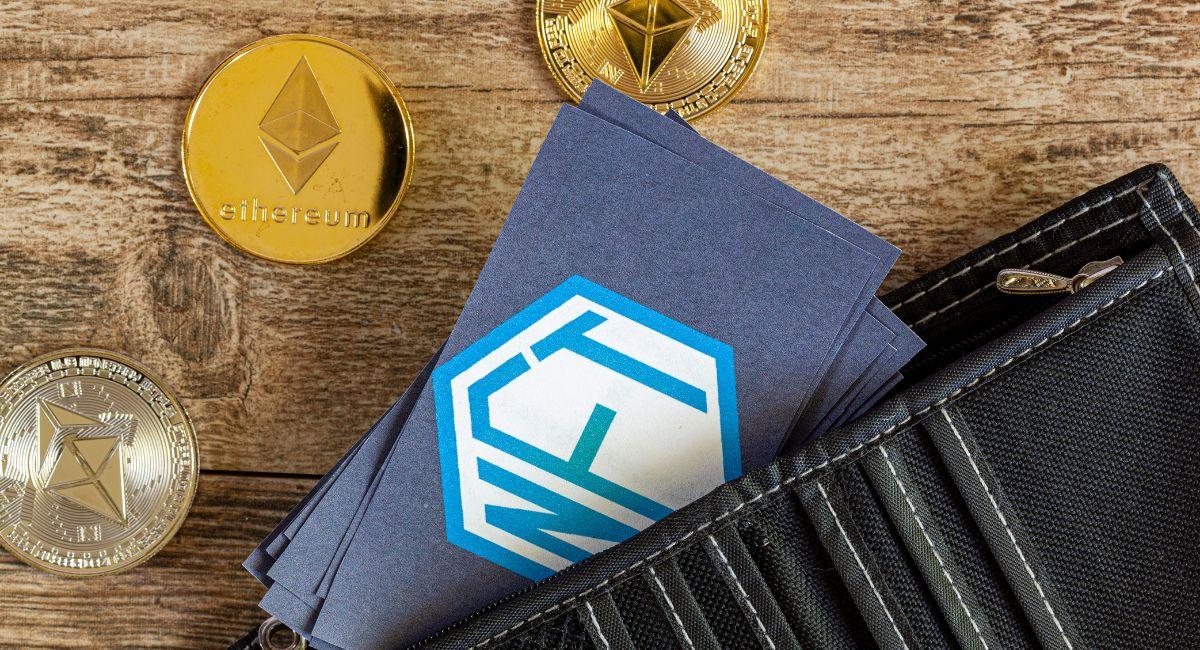
In the ever-evolving landscape of Web 3.0, non-fungible tokens (NFTs) have emerged as groundbreaking technology that is transforming the way we perceive and interact with digital assets. Initially popularized as a means of owning and trading digital collectibles, NFTs have now paved the way for an even more revolutionary concept: the creation of decentralized autonomous
In the ever-evolving landscape of Web 3.0, non-fungible tokens (NFTs) have emerged as groundbreaking technology that is transforming the way we perceive and interact with digital assets. Initially popularized as a means of owning and trading digital collectibles, NFTs have now paved the way for an even more revolutionary concept: the creation of decentralized autonomous organizations (DAOs). This article explores how NFTs are being used to establish DAOs in Web 3.0, delving into their potential benefits, challenges, and real-world examples of successful NFT-based DAOs.
Key Takeaways
- NFTs are not just digital collectibles; they are now integral to forming decentralized autonomous organizations (DAOs).
- NFT-based DAOs enable community-driven decision-making, ownership rights, and collective financing.
- Real-world examples of NFT-based DAOs include Friends With Benefits, PleasrDAO, and FlamingoDAO, among others.
- These DAOs are revolutionizing industries by fostering collaboration, funding, and fair compensation for creators.
- As technology matures, NFT-based DAOs have the potential to reshape industries and empower communities.
1. Friends With Benefits
Friends With Benefits (FWB) is an exclusive social club that you pay to enter. This DAO is a unique blend of social networking and decentralized governance, creating a community where members can connect, collaborate, and share resources.
Road to Fest: NYC
Road to Fest: NYC is a member-led initiative that will provide value to NYC-based members and friends and to reestablish FWB as the premiere social DAO in NYC. This initiative is a testament to the community-driven nature of FWB, where members actively contribute to the growth and success of the DAO.
Exclusive Membership
To become a member of FWB, individuals must hold a certain amount of the FWB token. This token acts as both a membership pass and a governance token, allowing members to vote on proposals and shape the future of the DAO.
Community Events
FWB regularly hosts events, both virtual and in-person, to foster connections among members. These events range from casual meetups to large-scale festivals, providing ample opportunities for members to engage and collaborate.
FWB exemplifies how DAOs can create vibrant, engaged communities through decentralized governance and shared interests.
2. PleasrDAO
PleasrDAO is a collective that has gained significant attention for its strategic investments in rare and valuable NFTs. One of its most notable acquisitions is the historic purchase of “CryptoPunk #7804.” The ownership of this NFT is shared among the DAO members, and decisions regarding its display, loaning, or selling are made collectively through voting. This highlights how NFT-based DAOs can address the need for interoperability and coordination in the decentralized ecosystem.
Collective Ownership
PleasrDAO demonstrates the power of NFT-based DAOs in enabling collective ownership, strategic investments, and the democratization of access to valuable digital assets. Instead of a select few having the majority of say, members of each DAO can vote on decisions together, typically on equal footing.
Strategic Investments
The DAO has also made headlines for its purchase of the Wu-Tang Clan album. After acquiring the album, they created an NFT to represent a deed of ownership. The members of PleasrDAO co-own the NFT deed, and in turn, share ownership of the album.
Democratization of Access
PleasrDAO showcases the potential of NFT-based DAOs to redefine traditional ownership models. By pooling funds and making collective decisions, they democratize access to high-value digital assets, making it possible for more people to participate in the ownership and decision-making processes.
3. FlamingoDAO
FlamingoDAO is a prominent player in the NFT space, known for its unique approach to collecting and investing in digital assets. FlamingoDAO collects NFTs and has a significant influence on the market, often setting trends and driving demand for specific types of digital art.
DAO Structure
Each DAO is structured differently, but usually, when joining a DAO, you agree to the code in place. It isn’t easy to change that code, and any changes typically require a vote between members. FlamingoDAO is no exception, operating under a transparent, community-driven decision-making process.
Participatory Nature
DAOs are “very participatory,” says Aaron Wright, co-founder and CEO of OpenLaw, a blockchain-based protocol for the creation and execution of legal agreements. Wright has helped launch several DAOs, including FlamingoDAO, which collects NFTs.
Influence on the Market
FlamingoDAO’s activities often set trends in the NFT market. By strategically acquiring and promoting certain NFTs, they can drive up the value and demand for these digital assets. This influence makes FlamingoDAO a key player in the evolving landscape of Web 3.0.
FlamingoDAO exemplifies how DAOs can leverage collective decision-making to impact the broader NFT market, showcasing the potential of decentralized governance in the digital age.
4. JennyDAO
Introduction
JennyDAO is a unique decentralized autonomous organization that focuses on fractional ownership of NFTs. This approach allows members to collectively own high-value digital assets, making it more accessible for a broader audience.
Fractional Ownership
One of the standout features of JennyDAO is its emphasis on fractional ownership. This means that the high cost of iconic artworks or rare NFTs is no longer a barrier, as members can own a fraction of these valuable assets. This model democratizes access to high-value NFTs, enabling more people to participate in the digital art market.
Community Governance
JennyDAO operates on a community-driven governance model. Members have a say in the decision-making process, ensuring that the DAO’s actions reflect the collective will. This participatory approach fosters a sense of ownership and responsibility among members.
Investment Strategy
The DAO’s investment strategy is another key aspect. JennyDAO carefully selects NFTs to invest in, aiming for a diversified portfolio that balances risk and reward. This strategic approach helps in maximizing returns for its members.
JennyDAO exemplifies how fractional ownership and community governance can revolutionize the way we interact with digital assets.
Conclusion
In summary, JennyDAO is a pioneering force in the world of NFT-based DAOs. Its focus on fractional ownership, community governance, and strategic investment makes it a standout example of how DAOs can democratize access to valuable digital assets.
5. WhaleDAO
WhaleDAO is a unique decentralized autonomous organization that focuses on the acquisition and management of high-value NFTs. WhaleDAO’s mission is to democratize access to rare and valuable digital assets by pooling resources from its members. This allows individuals to own a fraction of high-end NFTs that would otherwise be out of reach for most people.
Structure and Governance
WhaleDAO operates with a completely flat hierarchy, ensuring that all members have an equal say in decision-making processes. Each member’s voting power is proportional to their stake in the DAO, making it a truly participatory organization.
Key Achievements
- Successfully acquired several high-value NFTs, including rare CryptoPunks and Bored Ape Yacht Club pieces.
- Implemented a transparent and efficient governance model that allows for quick decision-making.
- Fostered a strong community of NFT enthusiasts and investors.
Future Plans
WhaleDAO aims to expand its portfolio by targeting emerging NFT projects and artists. The DAO is also exploring partnerships with other DAOs to enhance interoperability and coordination within the decentralized ecosystem.
6. FingerprintsDAO
FingerprintsDAO is a respected group of art collectors that focuses on acquiring and curating blockchain-based art. This DAO is unique in its approach, as it not only collects NFTs but also supports artists and projects that push the boundaries of digital art. FingerprintsDAO has become a significant player in the NFT art world, known for its discerning taste and commitment to innovation.
Mission and Vision
FingerprintsDAO aims to create a decentralized art collection that is both diverse and cutting-edge. The DAO’s mission is to support artists who are exploring new mediums and techniques, particularly those that leverage blockchain technology.
Key Projects
- Maschine: An exploration of the intersection between art and technology.
- Art Grants: Providing funding to artists who are pushing the boundaries of digital art.
- Collaborations: Partnering with other DAOs and art institutions to promote blockchain-based art.
Community and Governance
FingerprintsDAO operates on a community-driven governance model. Members who own NFTs from the DAO have voting rights, allowing them to participate in decision-making processes. This ensures that the DAO remains transparent and that its actions reflect the community’s interests.
FingerprintsDAO exemplifies how DAOs can revolutionize the art world by leveraging blockchain technology to create a transparent, community-driven platform for art collection and curation.
7. Yield Guild Games
Yield Guild Games (YGG) is a decentralized autonomous organization (DAO) that invests in virtual world and blockchain-based game assets. YGG aims to create the largest virtual world economy by optimizing its community-owned assets for maximum utility and sharing profits with its token holders.
8. MetaCartel
MetaCartel is a pioneering investment DAO that has made significant strides in the Web 3.0 ecosystem. MetaCartel Ventures has invested in multiple blockchain startups, showcasing the potential of collective decision-making in venture capital. This DAO serves as a framework for coordinating decision-making across multiple other DAOs, addressing the challenge of fragmentation and coordination by creating a higher-level governance structure. Metagovernance token holders can participate in meta-decision-making processes, enabling collaboration and alignment among various DAOs.
9. ConstitutionDAO
ConstitutionDAO was a unique and ambitious project that aimed to purchase one of the original copies of the U.S. Constitution from Sotheby’s. Despite the group’s best efforts, they ultimately found out they were not the highest bidder and lost the auction. However, members were able to receive a refund of their initial investment, showcasing the transparent and community-driven nature of DAOs.
DAO Structure
Each DAO is structured differently, but usually, when joining a DAO, you agree to the code in place. It isn’t easy to change that code, and any changes typically require a vote between members. DAOs are very participatory, and every decision within the DAO is pitched, discussed, voted on, and documented publicly.
Decentralized Governance
A decentralized autonomous organization is exactly what the name says; a group of people who come together without a central leader or company dictating any of the decisions. They are built on a blockchain using smart contracts. Members of DAOs often buy their way in, most of the time purchasing a governance token specifically for the DAO that gives them the ability to vote on decisions.
Community and Participation
Sometimes, in larger DAOs, teams may form to tackle different aspects of the organization with leaders that have been voted in. This ensures that not every single member is needed to vote on every nuance, making the process more efficient. The most important aspect of DAOs is transparency. Every decision within the DAO is pitched, discussed, voted on, and documented publicly.
10. Krause House
Introduction
Krause House is a unique NFT-based DAO with a mission to purchase and operate an NBA team. This ambitious goal has captured the imagination of many in the Web 3.0 community.
Community and Governance
The DAO is governed by its members, who hold Krause House NFTs. These NFTs grant voting rights and a say in the decision-making process, ensuring a decentralized and democratic approach.
Funding and Strategy
Krause House has implemented innovative strategies to raise funds, including NFT sales and partnerships. The community’s collective effort is directed towards achieving their ultimate goal of owning an NBA team.
Challenges and Future Prospects
While the goal is ambitious, the journey is fraught with challenges, including regulatory hurdles and the sheer scale of the financial requirements. However, the community remains optimistic and persistent in their pursuit.
The blockchain magazine explores challenges and promises of on-chain reputation systems. Top 10 intriguing aspects highlighted.
Conclusion
Krause House exemplifies the potential of NFT-based DAOs to bring together a community with a shared vision and transform ambitious dreams into reality.
Krause House is revolutionizing the way we think about decentralized organizations. Dive deeper into the world of blockchain and discover how Krause House is making waves in the industry. For more insights and the latest updates, visit our website.
Conclusion
In conclusion, NFTs have transcended their initial role as digital collectibles and are now at the forefront of a paradigm shift in Web 3.0, enabling the creation of decentralized autonomous organizations. NFT-based DAOs offer opportunities for community-driven decision-making, ownership rights, collective financing, and fair compensation for creators. As the technology matures and more real-world examples emerge, NFT-based DAOs have the potential to reshape industries, empower communities, and redefine collaboration and ownership in the digital realm. It is an exciting time as we witness the transformative power of NFTs and DAOs converging to shape the future of Web 3.0.
Frequently Asked Questions
What is an NFT-based DAO?
An NFT-based DAO (Decentralized Autonomous Organization) leverages non-fungible tokens (NFTs) to enable decentralized decision-making, ownership, and governance within a community. Members use NFTs to represent their voting power or stake in the organization.
How do NFTs enable decentralized decision-making in DAOs?
NFTs provide a secure and transparent way to represent ownership and voting rights within a DAO. Members can use their NFTs to vote on proposals, participate in governance, and make collective decisions without relying on a central authority.
What are some benefits of NFT-based DAOs?
NFT-based DAOs offer several benefits, including community-driven decision-making, ownership rights, collective financing, and fair compensation for creators. They empower communities and enable more democratic and transparent governance models.
What challenges do NFT-based DAOs face?
Challenges include scalability and efficiency of blockchain networks, legal and regulatory uncertainties, and the need for user-friendly interfaces. Overcoming these challenges is crucial for the widespread adoption of NFT-based DAOs.
Can NFT-based DAOs be used in industries other than art and collectibles?
Yes, NFT-based DAOs have the potential to revolutionize various industries beyond art and collectibles. They can be used in finance, gaming, real estate, intellectual property, and more, enabling decentralized collaboration and ownership.
What is the future outlook for NFT-based DAOs?
As the technology matures and more real-world examples emerge, NFT-based DAOs have the potential to reshape industries, empower communities, and redefine collaboration and ownership in the digital realm. The future looks promising for this innovative approach.
NFTs
RTFKT Announces Project Animus Reveal, Launches Egg Unboxing Event Amid Mixed Reactions | NFT CULTURE | NFT News | Web3 Culture
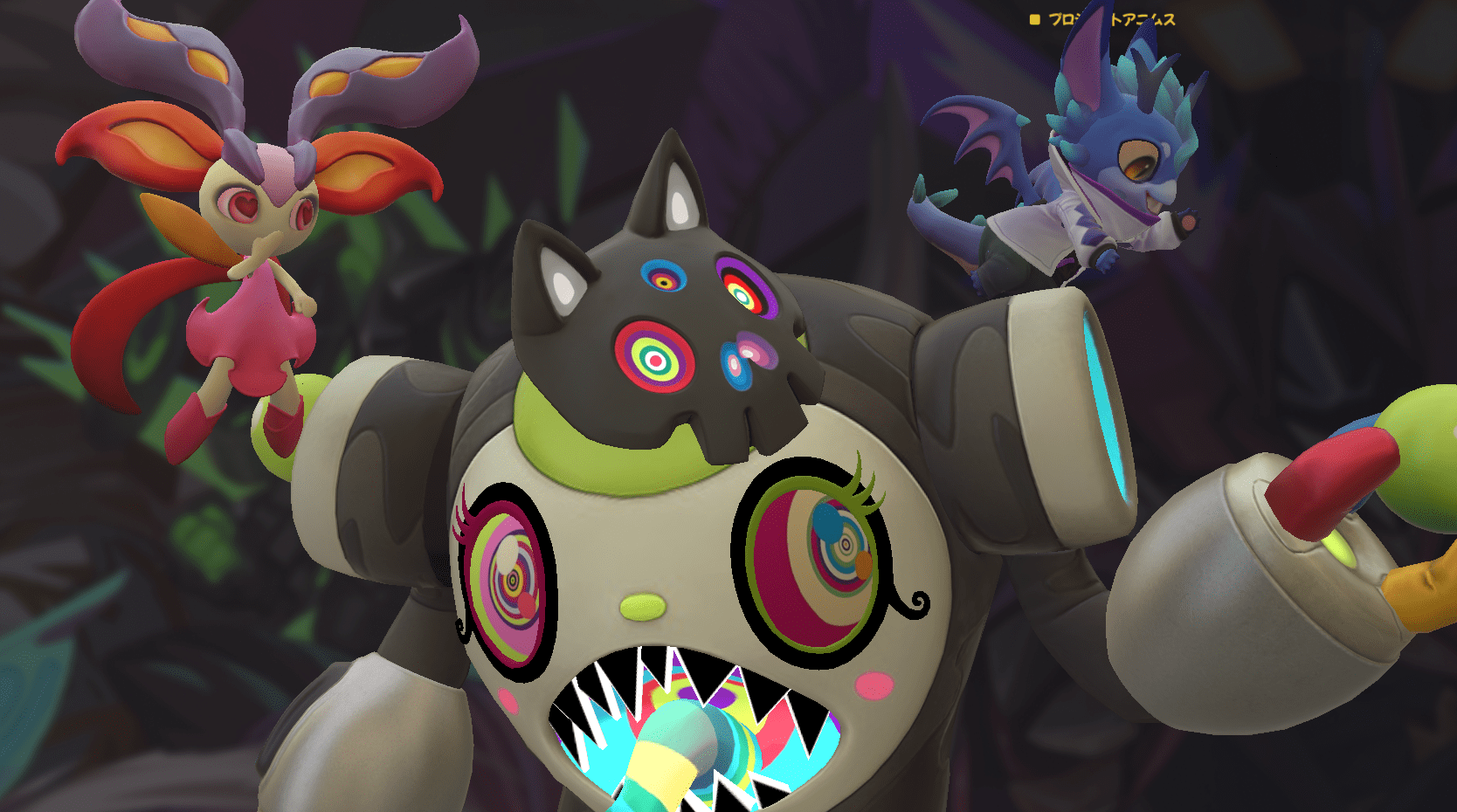
RTFKT, the innovative creator-led company renowned for its cutting-edge sneakers and metaverse collectibles, has officially unveiled its highly anticipated collection, Project Animus. This project marks a significant milestone in RTFKT’s journey, introducing a new dimension to its digital universe after a long period of development. However, the initial market response has been disappointing, with the revealed Animi trading at a floor price of 0.05 ETH, significantly lower than the eggs’ floor price of 0.09 ETH.
The Genesis of the Project Animus
Initially introduced in October 2022, Project Animus introduces a unique ecosystem of digital creatures called Animi. These Animi are designed to enhance Clone X’s avatars, offering an immersive and engaging experience for the community. The recent reveal showcased a diverse range of Animi species, each with distinct design traits and elemental attributes, breaking away from traditional trait-based rarity systems.
A New Digital Frontier: The History and Evolution of Project Animus
The Animus Project is RTFKT’s latest intellectual property, promising to revolutionize the NFT space with its unique digital creatures. The journey kicked off on October 8, 2022, with an interactive teaser event called “The Eggsperience.” This livestream event allowed attendees to explore a virtual Animus Research Facility, generating intrigue and excitement among the community.
Renowned artist Takashi Murakami played a significant role in the project, revealing the first Murakami-themed Animus creature, Saisei, on April 30, 2023. This collaboration added a layer of artistic prestige to the project, further elevating its status within the NFT community.
Animus Egg Incubation: A Journey from Egg to Animi
Clone X NFT holders had the opportunity to claim an Animus Egg until March 1, 2024. This was followed by the Animus Egg Hatching event, which ran from May 7 to June 4, 2024. During this period, holders of several RTFKT NFTs, including Clone X, Space Pod, Loot Pod, Exo Pod, and Lux Pod, were able to use a points-based system to increase their chances of hatching rarer Animi. The limited supply of Project Animus Eggs is capped at 20,000, with no public sale planned.
Mixed market reception
Despite the excitement and innovative features, the market reaction to the reveal of Project Animus has been lukewarm. Animi is currently trading at a floor price of 0.05 ETH, significantly lower than the eggs’ floor price of 0.09 ETH. This discrepancy has led to disappointment among some collectors who had high expectations for the project.
What Awaits Us: The Future of Project Animus
Following the reveal, RTFKT plans to release a collection of exclusive Animus Artist Edition characters. Holders of Clone X Artist Edition NFTs are guaranteed to get one of these special editions. The distribution will include 88 Special Edition Animus, with 8 Mythic (Dragon Sakura), 40 Shiny, and 40 Ghost Animus. The odds of receiving a Special Edition Animus are the same for all Eggs hatched, regardless of the points accumulated.
The remaining Animus characters will be distributed among unhatched Eggs, encompassing Special Edition Animus, as well as Cosmic Animus and Murakami Element from Generation 1, Generation 2, and Generation 3.
Conclusion
RTFKT’s Project Animus represents a bold step forward in the NFT space, combining cutting-edge technology with artistic collaboration to create an immersive and innovative digital ecosystem. However, the initial market reception highlights the challenges of living up to high expectations in the ever-evolving NFT landscape. As the project continues to evolve, it promises to deliver unique experiences and opportunities for its community, solidifying RTFKT’s position as a leader in the metaverse and digital collectibles arena.
Summary: RTFKT has unveiled Project Animus, introducing a unique ecosystem of digital creatures called Animi designed to enhance Clone X avatars. Despite the excitement, market response has been mixed, with Animi trading at a lower floor price than eggs. The project kicked off with an interactive event in October 2022, featuring collaborations with artist Takashi Murakami. Following the reveal, RTFKT will release special edition Animus characters. The total supply of Animus Eggs is limited to 20,000, with no public sale planned.
NFTs
The Olympics have reportedly ditched Mario and Sonic games in favor of mobile and NFTs
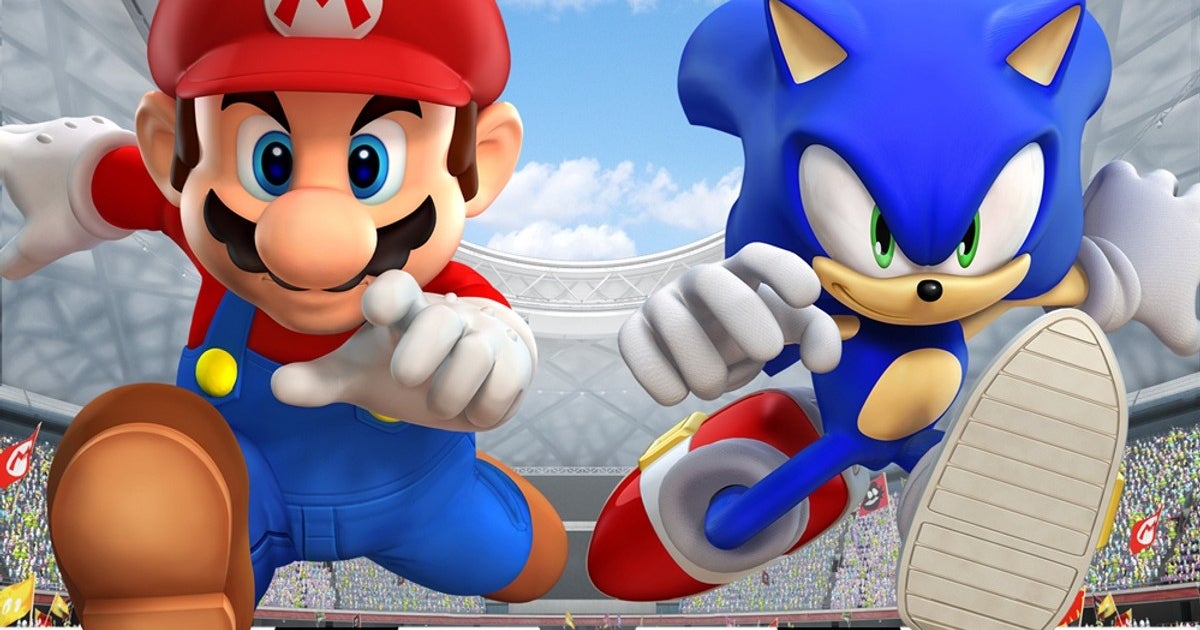
The long and historic partnership between Nintendo and Sega to create video games for the Olympics reportedly ended in 2020 as event organizers sought opportunities elsewhere.
Lee Cocker, who served as executive producer on several Mario & Sonic Olympics titles, said Eurogamer the International Olympic Committee let the licensing agreement lapse because it “wanted to look at other partners, NFTs and esports.”
“Basically, the IOC wanted to bring [it] “Turn inward and look for other partners so you can get more money,” Cocker added.
The 2024 Summer Olympics kicked off in Paris last week, but there were no Mario & Sonic games available in time for the event to begin – the first time this has happened since the original release in 2007 to coincide with the 2008 Beijing Summer Olympics.
Over the past two decades, there have been four Mario and Sonic adaptations for the Summer Olympics, as well as two for the Winter Olympics.
This year, instead of a Nintendo/Sega title, the IOC released Olympics Go! Paris 2024, a free-to-play mobile and PC title developed by nWay, which has worked on several Power Rangers games.
Olympics Go! allows players to compete in 12 sports and unlock NFTs from the Paris 2024 digital pin collection.
The original Mario & Sonic at the Olympic Games was announced in March 2007 and marked the first time the two mascots – once archrivals in the console wars of the 1990s – appeared together in a game.
NFTs
DraftKings abruptly shuts down NFT operation, leaving collectors panicking over vast holdings of digital tokens
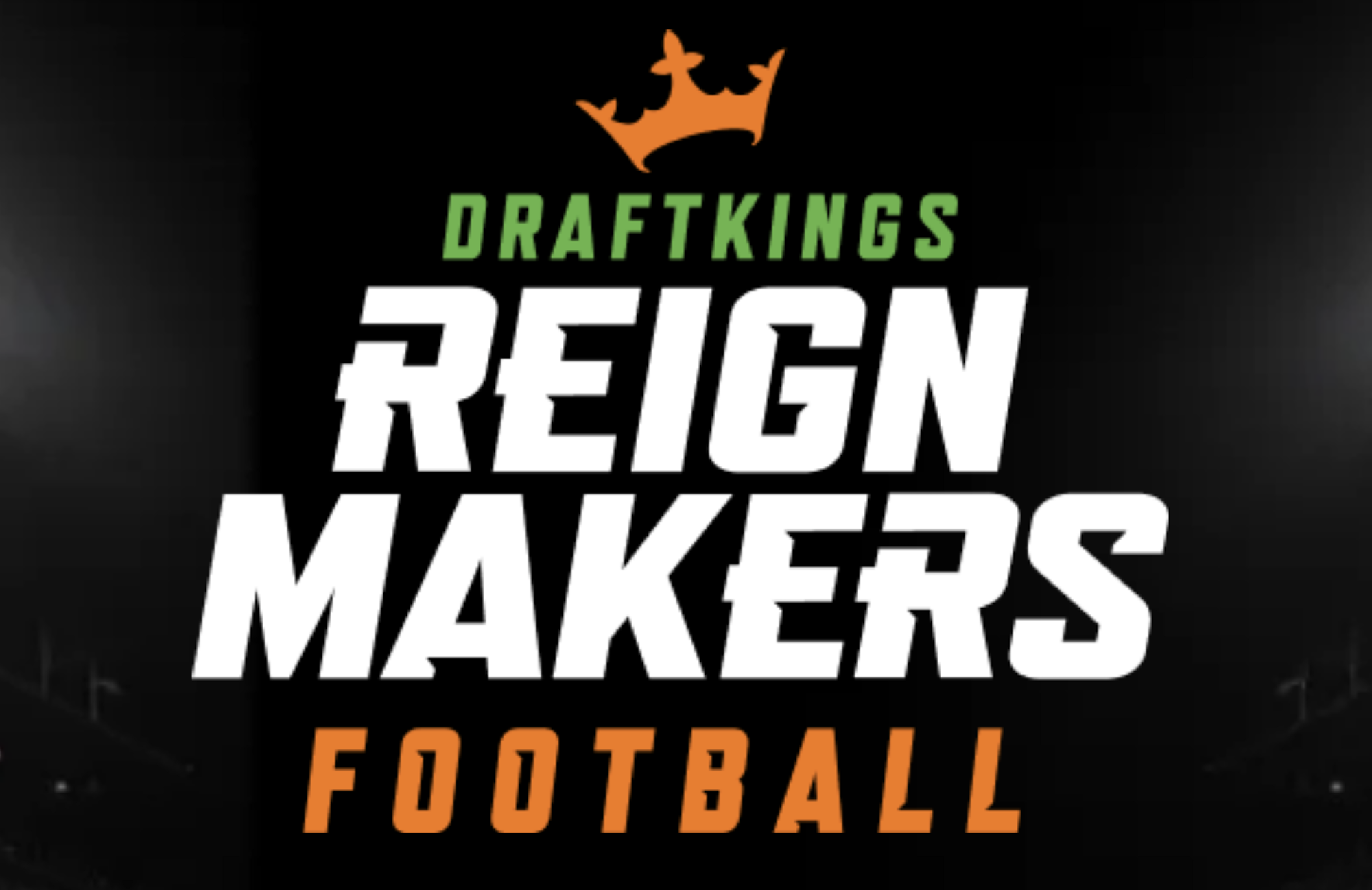
DraftKings, the daily fantasy sports and sports betting company, abruptly shut down a program called Reignmakers on Tuesday, posting a notice on its website and associated app and sending a mass email to some subset of its user base. Reignmakers, which the company launched in 2021, offered pay-to-play competitions in NFL football, PGA Tour golf and UFC mixed martial arts. The decision to eliminate the entire program, DraftKings says, was not made lightly but was forced “due to recent legal developments.”
DraftKings has yet to specify what “recent legal developments” are troubling its now-dead Reignmakers product. The company was sued in U.S. District Court in 2023 by a Reignmakers player named Justin Dufoe, who accuses the company of dealing in unregistered securities, taking advantage of relatively unsophisticated “retail investors,” and failing to market and support Reignmakers to the degree necessary to return to its users the financial benefits expected. DraftKings filed a motion in September to dismiss Dufoe’s complaint, but that motion was denied on July 2. A scheduling conference was held by the parties on July 29; Reignmakers was permanently shut down on July 30. A DraftKings spokesperson reached by Defector on Wednesday declined to confirm whether Dufoe’s complaint is the “recent legal development” that forced the company’s hand.
Users of the Reignmakers NFL product, who in recent days began murmuring on social channels about a notable lack of DraftKings activity so close to the start of the NFL preseason schedule, were caught off guard and, in some cases, devastated by the news. Members of the DraftKings Discord server, where all Reignmakers-related channels were abruptly shut down and locked following the announcement, flooded a general channel in various states of panic, sharing news, theorizing, lamenting, and, in some cases, openly worrying about whether it would be possible to recoup any decent fraction of the genuinely impressive sums of money they had invested in this DraftKings product.
Reignmakers is nominally a daily fantasy contest—users build lineups of players and then pit those lineups against other users’ lineups for cash prizes—but it’s actually a distributor of nonfungible digital tokens (NFTs), originated and sold by DraftKings, and then frequently resold on a dedicated secondary marketplace also hosted by DraftKings. At the lineup-building level, Reignmakers functions like a card-collecting game, with artificial scarcity driving the prices of the most coveted cards to insane, eye-popping heights. Reignmakers NFTs are tiered and offered in timed drops designed to heighten the sense of scarcity. A user can enter a lower-tier contest using a collection of NFTs that may have cost a few hundred dollars in total (or that were earned by purchasing random packs of NFTs that offer generally low odds of scoring top assets) and throw their lot in with hundreds of casual users competing for relatively unimpressive rewards. Random packs at the lowest tier would have prices as low as a few dollars; mid-tier cards—Star and Elite tiers, I’d guess—could cost a player upwards of $1,000.
But players interested in hunting down the biggest payouts, not just from games but from leaderboard prizes and other assorted prizes, would need to enter higher-tier games, and to enter the higher-tier games, a user’s collection needed to include higher-tier NFTs. DraftKings ensured that these cards were extremely scarce and could only be purchased directly on the marketplace at prices that any reasonable person would consider utterly insane.
For example, the highest-tier Reignmaker contests (called the Reignmakers tier, of course) have in the past been limited to listings with at least two of the highest-tier, rarest NFTs (also the Reignmaker tier) plus three NFTs from the second-highest tier (Legendary). NFTs at these tiers are expensive. Not just expensive in the way that, like, a steak dinner is expensive, but expensive in the way that buying even one of them should trigger a mandatory visit to a gambling addiction counselor, if not sirens and a straitjacket. Back in 2022a Reignmaker-level Ja’Marr Chase NFT from something called the Field Pass Promo Set could be purchased directly from the DraftKings Reignmaker Marketplace for a whopping $32,100.
Reignmakers users purchased NFTs at various levels with the expectation that owning them would convey better odds of winning contests hosted on DraftKings. This was the gamification element of Reignmakers, which emerged several months after DraftKings began trading and minting its NFTs. But as with all NFTs, a very large part of the real appeal for its buyers was the expectation, however insane, that these worthless, virtually worthless, infinitely duplicable digital images would increase in value over time. Now that both the Reignmakers game and the Reignmakers marketplace have been shut down, Reignmakers NFT holders are worried that their investments may have suddenly lost all monetary value. One Discord user described Tuesday as “a bad day to wake up and realize you have $2,000 worth of unopened NFL Rookie Packs”; Another user asked the group if they should expect “a refund” on the $10,000 they’ve already spent on Reignmakers NFTs this year. A pessimistic Reddit user posted tuesday that they would sue DraftKings if they were forced to take a total loss on a Reignmakers NFT collection worth approximately $100,000.
The game (scam?) was built to make numbers like these not only possible, but somewhat easily achievable. A user who intended to compete from a position of strength in multiple overlapping high-profile contests at the same time, and who had been in the blockchain madhouse for a period of years, could easily have spent six figures on Reignmakers NFTs. DraftKings used non-gaming incentives to entice players to spend more and more money, much like casinos give away free suites to players who over-bet on blackjack. Another Reddit user lamented the loss of the additional prizes and ranking bonuses he had hoped to earn in the upcoming NFL season by having a portfolio of NFTs that had reached the highest levels of value and prestige. “I was already loaded up on 2024 creation tokens and rookie debut cards,” said this Reignmakers userwho claimed his portfolio was finally “close to the top 250 overall.”
Dufoe’s complaint says the NFTs minted by DraftKings for Reignmakers qualify as securities, function like securities, and should be regulated as securities. In its motion to dismiss, DraftKings attempted to position its NFTs as game pieces — eye-wateringly expensive, yes, but essentially the same thing as Magic: The Gathering cards or Monopoly hotels. The court, in resolving these arguments, applied what’s known as “the Howey test,” referencing a case from 1946 in which the U.S. Supreme Court established a standard for determining whether a specific instrument qualifies as an investment contract. Judge Dennis J. Casper, in ruling against DraftKings’ motion, concluded that Dufoe could plausibly argue that Reignmakers’ NFT transactions represent “the pooling of assets from multiple investors in such a manner that all share in the profits and risks of the enterprise,” arguing that DraftKings’ absolute control over the game and marketplace effectively binds the financial interests of the company and the buyers, the latter of whom depend on the viability of both for their NFTs to retain any value.
Reignmakers users are different from Monopoly players in at least one crucial way: A person who buys a Monopoly board has no expectation from Hasbro that those little red and green pieces will appreciate in value. It’s a game! No matter what any hysterically conflicted party may say to the contrary, that’s not what NFT collecting is. DraftKings had been selling Reignmakers NFTs for months before they were gamified, and Dufoe, in his complaint, cites public comments made by DraftKings spokespeople that seem to explicitly position Reignmakers NFTs as assets with independent monetary value beyond their utility in Reignmakers contests. Judge Casper, in his ruling on the motion to dismiss, cites a Twitter account associated with a podcast run by DraftKings CEO Matthew Kalish, who in a tweet described NFTs as “the opportunity to invest in startups, artists, operations, and entrepreneurs all at once.” This is probably the kind of thing that NFT peddlers should stop saying. This advice assumes, of course, that NFTs will continue to exist as instruments on the other side of this and other lawsuits.
DraftKings has posted a worryingly sparse FAQ at the bottom of the your ad Tuesday, anticipating but largely failing to address questions from players who see this as yet another in a long line of brutal blockchain rug pulls. In a hilarious reversal of existing Reignmakers policy, Reignmakers users are now allowed by DraftKings to withdraw their Reignmakers NFTs from their DraftKings portfolios and into their personal NFT wallets, where those NFTs will have precisely zero value, to anyone, for the rest of all time. There’s also vague language about Reignmakers users having the option to “relinquish” their NFTs back to DraftKings in exchange for “cash payments,” subject to “certain conditions” and according to an as-yet-unspecified formula that will take into account, among other things, the “size and quality” of a player’s collection.
Reignmakers users are not optimistic. Those who claim to have been victims of other blockchain market crashes are warning their peers on Discord and Reddit to expect payouts that amount to pennies on the dollar; in the absence of any clarifying information, users are unsure whether cashing out their NFTs from Reignmakers to their personal NFT wallets, for reasons that completely pass any and all understanding, would effectively preclude the possibility of delivering these silly digital tokens back to DraftKings. It remains to be seen what exactly DraftKings has in mind with the “certain conditions” attached to the delivery process. There is much that has yet to be resolved. A DraftKings spokesperson contacted by Defector indicated that more time would be needed to answer a list of specific questions and issued a statement noting that it is “in DraftKings’ DNA to innovate and disrupt to provide the best possible gaming experiences for our customers.” The original complaint is embedded below.
Do you know anything about the demise of Reignmakers, either from the consumer side or from the DraftKings side? We’d love to hear from you. Get it in touch!
Recommended
NFTs
There Will Be No More ‘Mario & Sonic’ Olympics Because of NFTs
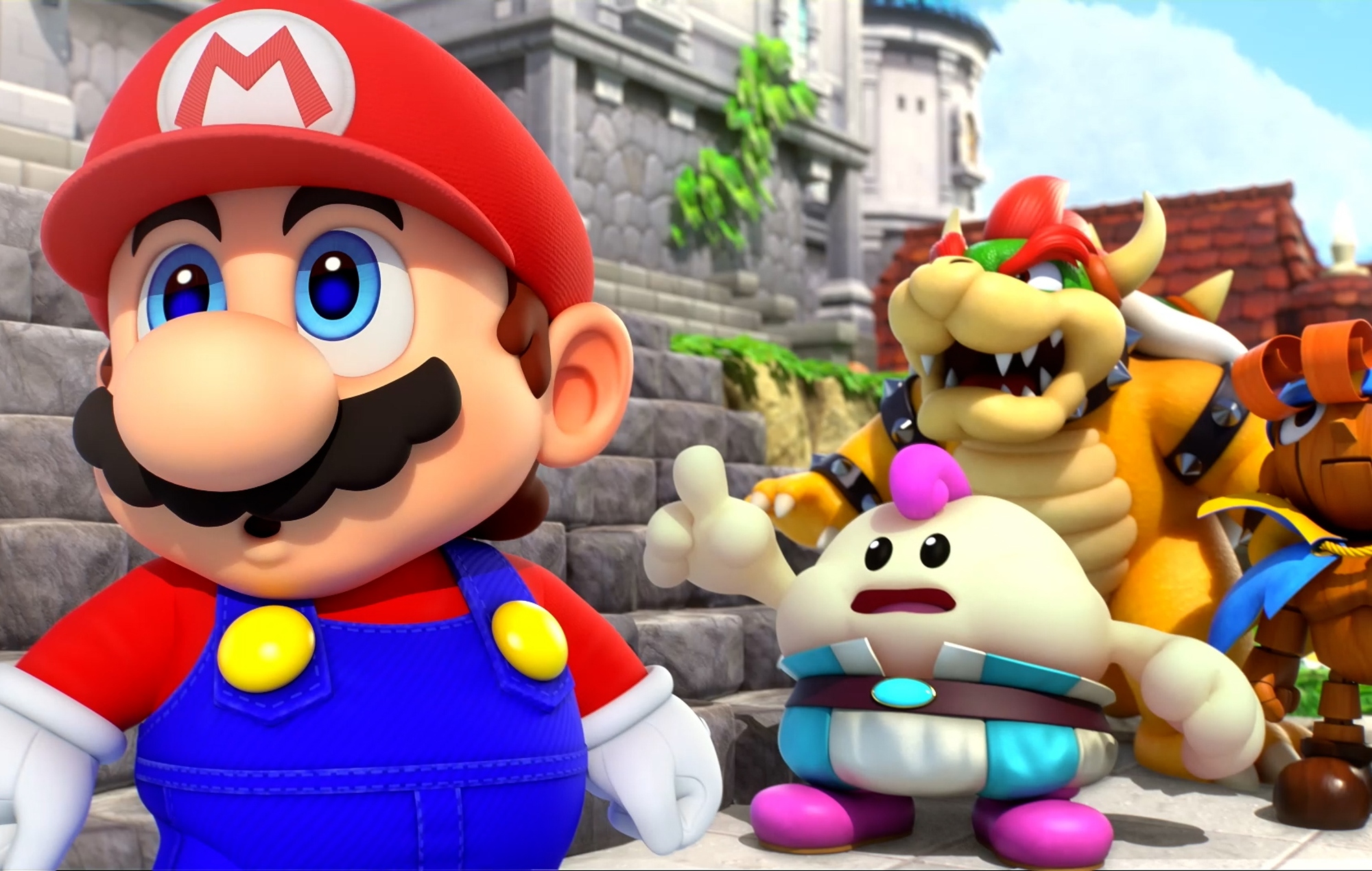
Nintendo and SEGA have been teaming up with the Olympics for several years now in the popular Mario & sonic in the Olympic Games series, but a new report claims the International Olympic Committee has abandoned the series in favor of new deals in eSports and NFTs.
According to Eurogamer“A veteran behind the series,” Lee Cocker, told the outlet that the IOC chose not to renew its license with SEGA and Nintendo, letting it expire in 2020. “They wanted to look at other partners and NFTs and eSports,” Cocker told Eurogamer. “Basically, the IOC wanted to bring [it] turn inward and look for other partners so they could get more money.”
Mario & Sonic at the Olympic Games is a series that has been running since 2008, with six main games covering the regular and Winter Olympics. In the games, players could control various characters from the Mario and Sonic franchises and compete in Olympic sporting events.
It’s no secret that NFTs are a big part of this year’s Paris 2024 Olympics. Olympics Go! Paris 2024 is a mobile and mobile-connected game your site states that players can “join the excitement of the Paris 2024 Olympic Games with nWay’s officially licensed, commemorative NFT Digital Pins collection honoring Paris 2024!”
As for eSports, Saudi Arabia will host the ESports Olympic Games in 2025. This is part of a partnership with the Saudi National Olympic Committee (NOC) that is expected to last for the next 12 years and is expected to feature regular events.
IOC President Thomas Bach said: “By partnering with the Saudi NOC, we also ensure that Olympic values are respected, in particular with regard to the game titles on the programme, the promotion of gender equality and the engagement with young audiences who are embracing esports.”
In other news, Someone claimed they’re suing Bandai Namco because Elden Ring is too difficult.
-
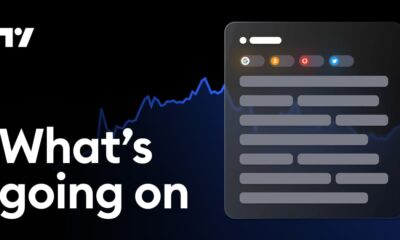
 News7 months ago
News7 months agoMore Crypto AI Alliances Emerge Following $7.5 Billion Token Merger — TradingView News
-
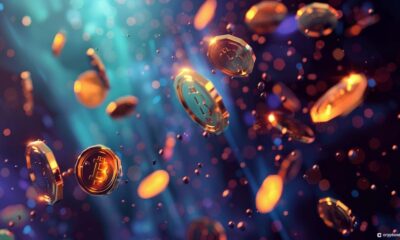
 News7 months ago
News7 months agoOver 1 million new tokens launched since April
-
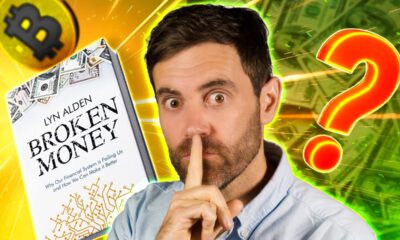
 Videos8 months ago
Videos8 months agoMoney is broke!! The truth about our financial system!
-
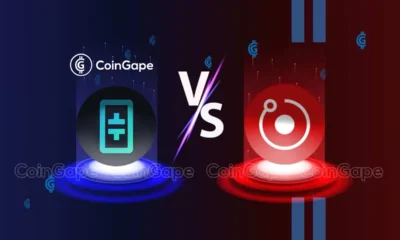
 Altcoins7 months ago
Altcoins7 months agoRender vs. Theta; Which DePIN Altcoin to buy in May
-
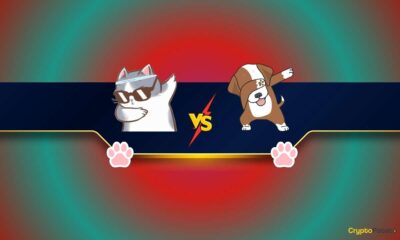
 Memecoins7 months ago
Memecoins7 months agoChatGPT Analytics That Will Work Better in 2024
-
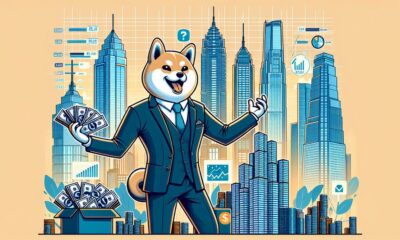
 Altcoins7 months ago
Altcoins7 months agoAltcoin Investments to create millionaires in 2024
-

 NFTs8 months ago
NFTs8 months agoSurprisingly, Bored Apes is now laying off employees as the NFT market disintegrates
-

 Videos7 months ago
Videos7 months agoFantom: Potential FTM Price and BIG Updates – The Latest!!
-
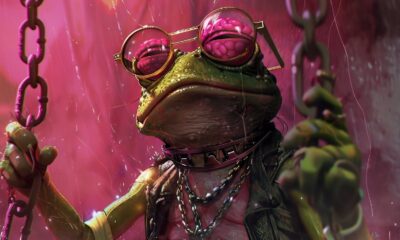
 News5 months ago
News5 months agoInvest Now: The Hottest New Cryptocurrencies of August 2024 That Could Skyrocket
-
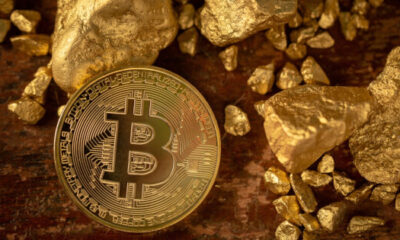
 Memecoins5 months ago
Memecoins5 months agoMemecoins dominate major derivatives in terms of open interest | Flash News Detail
-
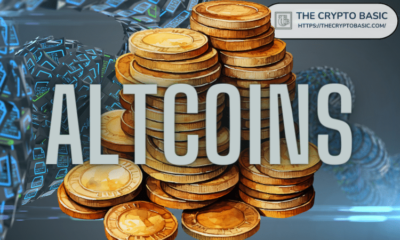
 Altcoins5 months ago
Altcoins5 months agoOn-chain data confirms whales are preparing for altcoin surge with increased buy orders
-
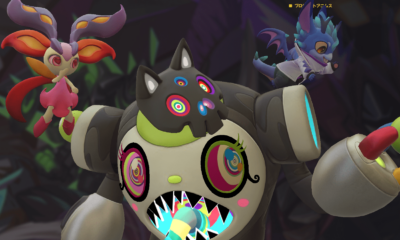
 NFTs5 months ago
NFTs5 months agoRTFKT Announces Project Animus Reveal, Launches Egg Unboxing Event Amid Mixed Reactions | NFT CULTURE | NFT News | Web3 Culture





